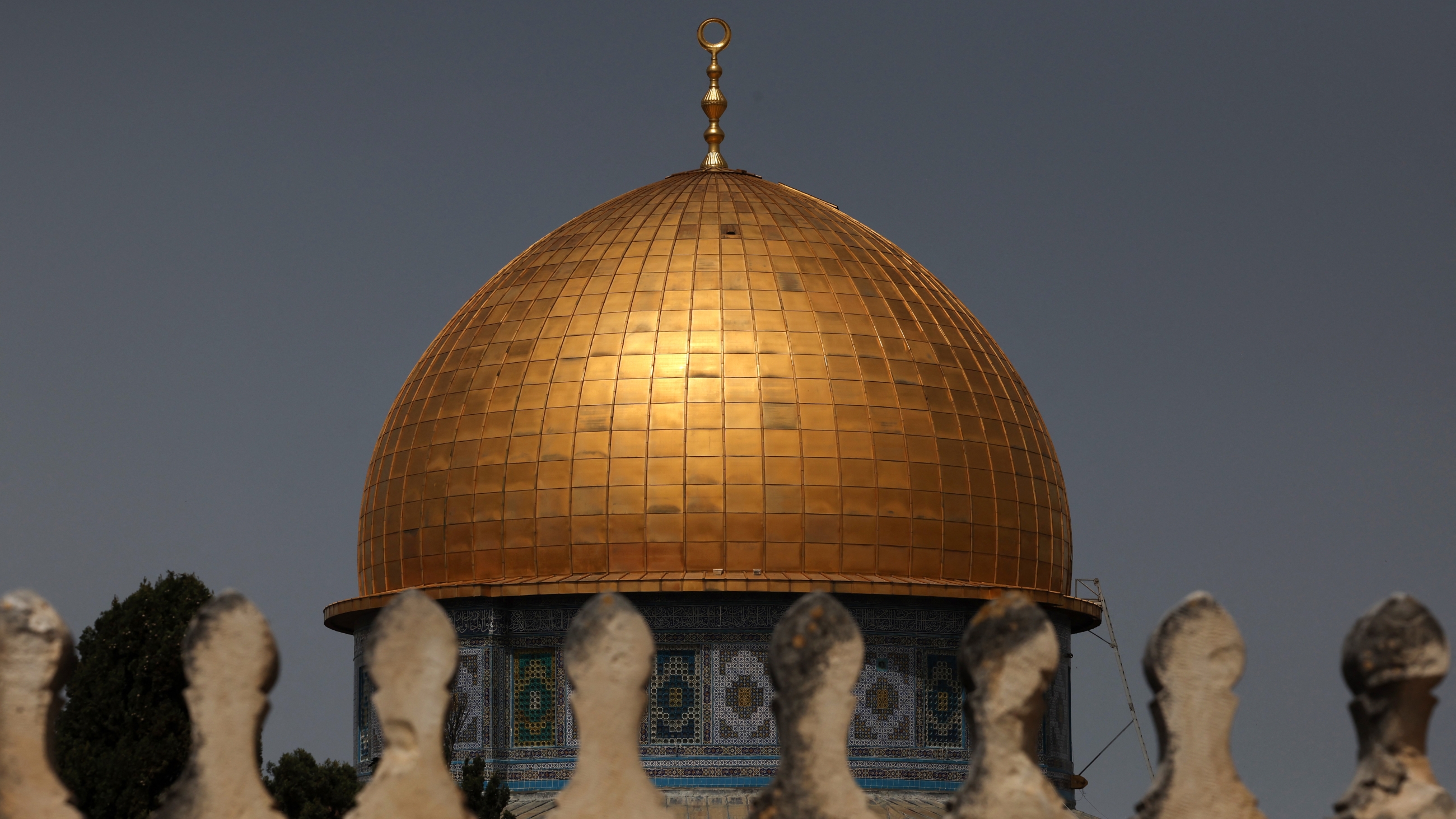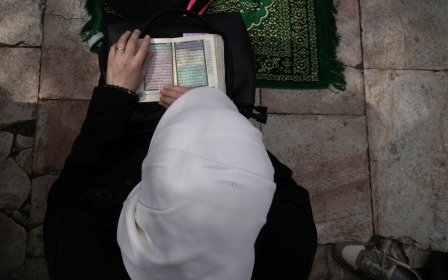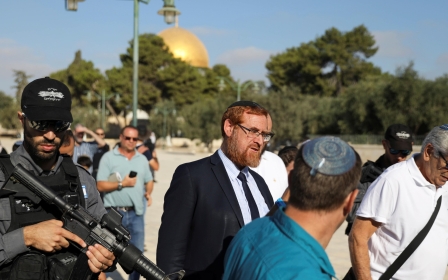Israel: MP proposes plan to divide Al-Aqsa Mosque

An Israeli lawmaker has suggested a plan to divide Al-Aqsa Mosque between Jews and Muslims, sparking major concerns from Palestinians who have long-held fears of the holy site being split up.
Amit Halevi, an MP with the governing Likud party, outlined his plan in an interview with the Hebrew-language newspaper Zeman Israel, in which he called for giving Muslims around 30 percent of the southern section of the complex, while the rest would be left for Jews, including the area where the Dome of the Rock is located.
Al-Aqsa Mosque, which spans 14 hectares and includes the Dome of the Rock as well as the silver-domed al-Qibli prayer hall, is an Islamic site where unsolicited visits, prayers and rituals by non-Muslims are forbidden according to decades-long international agreements.
The hill on which the mosque sits is known to Jews as the Temple Mount, and is believed to be the site where two ancient Jewish temples once stood.
The proposal comes in the wake of increasing Israeli intrusions by right-wing settlers, and repeated violations of existing agreements over the use of the site by Israeli forces.
New MEE newsletter: Jerusalem Dispatch
Sign up to get the latest insights and analysis on Israel-Palestine, alongside Turkey Unpacked and other MEE newsletters
Since Israel occupied East Jerusalem in 1967, including the Old City where Al-Aqsa Mosque is located, Israeli ultra-nationalist groups have pushed for imposing "full sovereignty" over the site, triggering concern that the Palestinian and Islamic nature of the site would be altered.
Israel's control of East Jerusalem violates several principles under international law, which stipulates that an occupying power has no sovereignty in the territory it occupies and cannot make any permanent changes there.
Palestinians reject plan
The proposed plan was met with rejection by Palestinians who said it would "drag the region into the furnace of a religious war".
The Higher Presidential Committee of Church Affairs in Palestine said in a statement that the plan must be "stopped and confronted".
Palestinians have long feared that the groundwork is being laid to divide Al-Aqsa between Jews and Muslims, just like the Ibrahimi Mosque in Hebron was split in the 1990s.
They cite the recent increase in the number of Israeli ultra-nationalists visiting and praying in Al-Aqsa under police protection without permission from Palestinians.
In 2009, 5,658 settlers entered the mosque in such incursions. In 2019, just before the Covid-19 pandemic, the number rose to 30,000, according to some estimates.
In his interview, Halevi also suggested that Jordan's administration of Al-Aqsa be revoked.
The Hashemite royal family of Jordan have been the custodians of both the Muslim and Christian holy sites in Jerusalem - including Al-Aqsa - for decades, as part of a delicate international arrangement known as the "status quo".
"If they pray there, it does not make the entire Temple Mount a holy place for Muslims. It wasn't and it won't be," Halevi said, using the Jewish term Temple Mount to refer to Al-Aqsa.
"We will take the northern end and pray there. The entire mountain is sacred to us, and the Dome of the Rock is the place on which the Temple stood. This should be our guideline. Israel is leading. It will be a historical, religious and national statement," Halevi added.
The lawmaker also seeks to change the access procedures for Jews visiting Al-Aqsa, demanding that Jews be allowed to enter the complex through all gates, rather than only through the southwestern Moroccan Gate.
The Moroccan Gate, or Bab al-Magharba, is the only gate out of the mosque's 15 entry points under the full control of Israeli authorities which no Palestinians can access.
Last September, Israeli ultra-nationalists stormed into Al-Aqsa via the Lions' Gate (Bab al-Asbat), marking the first time they entered the courtyards of the mosque from the gate since the Israeli occupation of East Jerusalem.
Many Palestinians worry that allowing settlers to enter through different gates signals a move towards expanding Israeli control over the mosque and changing the status quo.
This article is available in French on Middle East Eye French edition.
Middle East Eye delivers independent and unrivalled coverage and analysis of the Middle East, North Africa and beyond. To learn more about republishing this content and the associated fees, please fill out this form. More about MEE can be found here.





